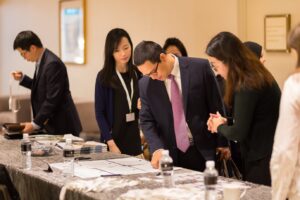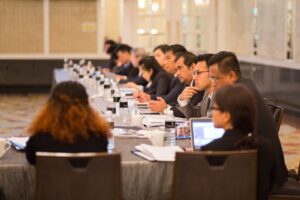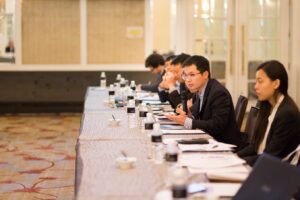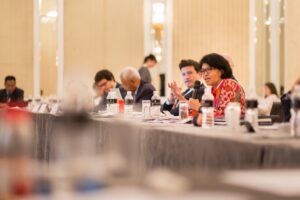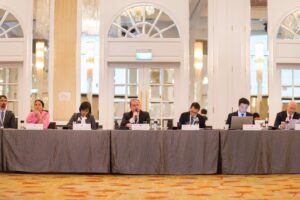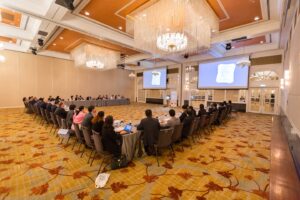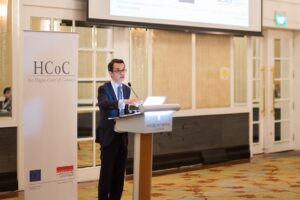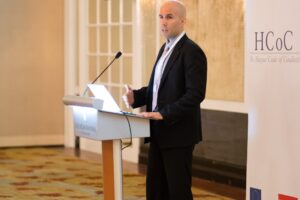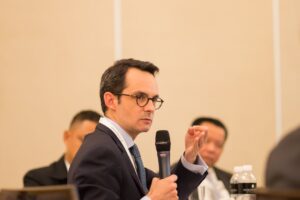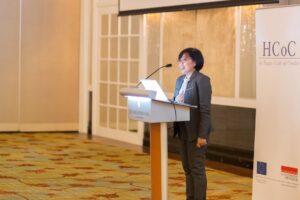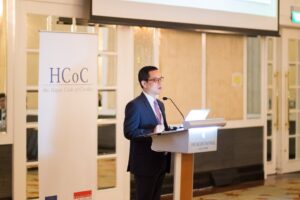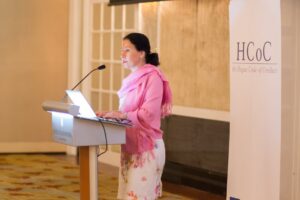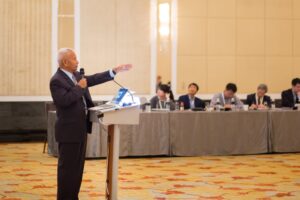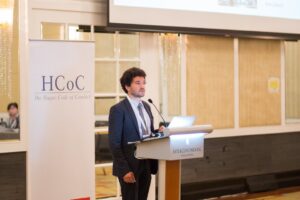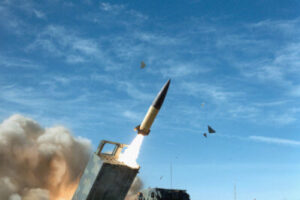ASEAN regional seminar on HCoC in Singapore
15 May 2018
On 15 May 2018, the FRS organised a regional outreach seminar in Singapore in cooperation with the S. Rajaratnam School of International Studies.
AGENDA
WELCOMING REMARKS
- Alexandre HOUDAYER, Secretary General, FRS
- H.E. Mrs Barbara PLINKERT, European Union Ambassador to Singapore
- Dr. Michael RASKA, Associate Professor, RSIS
I/ THE HCoC: A KEY INSTRUMENT TO PROMOTE CONFIDENCE IN THE FIELD OF WMD DELIVERY VEHICLES
MODERATOR:
- Alexandre Houdayer, Secretary General, FRS
PRESENTERS:
- H.E. Karin FICHTINGER-GROHE, Austrian Ambassador to Singapore
- H.E. Marek SZCZYGIEL, Ambassador at large, Department for UN and Human Rights, MFA of Poland
- Karla Mae G. PABELIÑA, Foreign Affairs Research Specialist with the Center for International Relations and Strategic Studies, Foreign Service Institute (FSI), The Philippines
- Benjamin HOUTECOUVERTURE, Senior Research Fellow, FRS
KEY ISSUES:
- Contribution of the Code to international security
- Being a Subscribing State: commitments and benefits
- Participating in international security: feedback from a Subscribing State
- Day-to-day implementation of the Code
II/ THE HCoC: SMALL BUT IMPORTANT PART OF THE GLOABL NON-PROLIFERATION REGIME
MODERATOR:
- Dewi Fortuna ANWAR, Distinguished Visiting Professor, RSIS
PRESENTERS
- Benjamin HOUTECOUVERTURE, Senior Research Fellow, FRS
- Dr. David SANTORO, CSIS
- Ta Minh TUAN, Diplomatic Academy of Vietnam
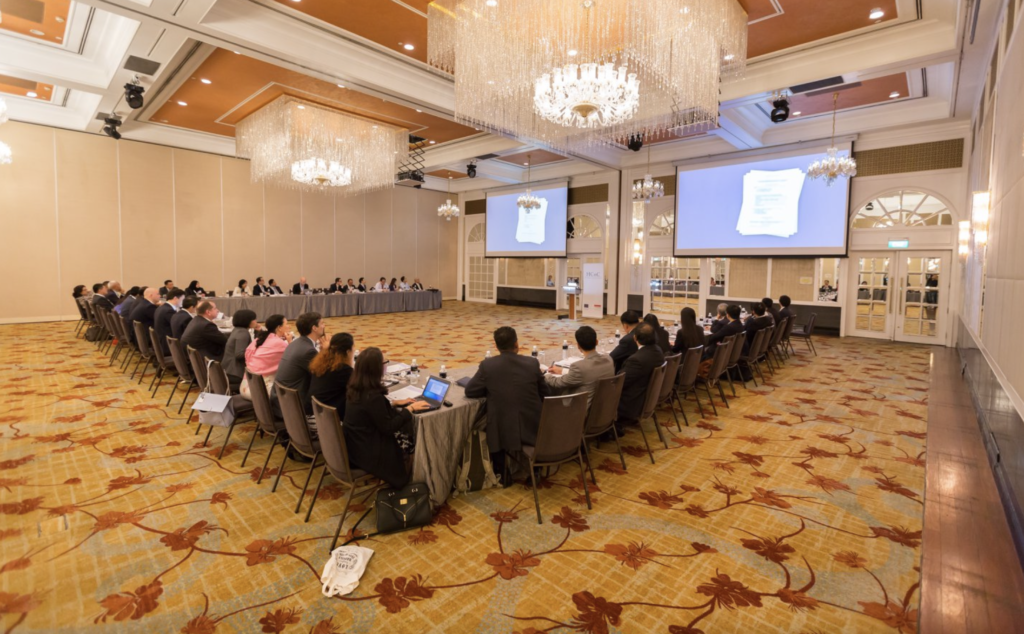
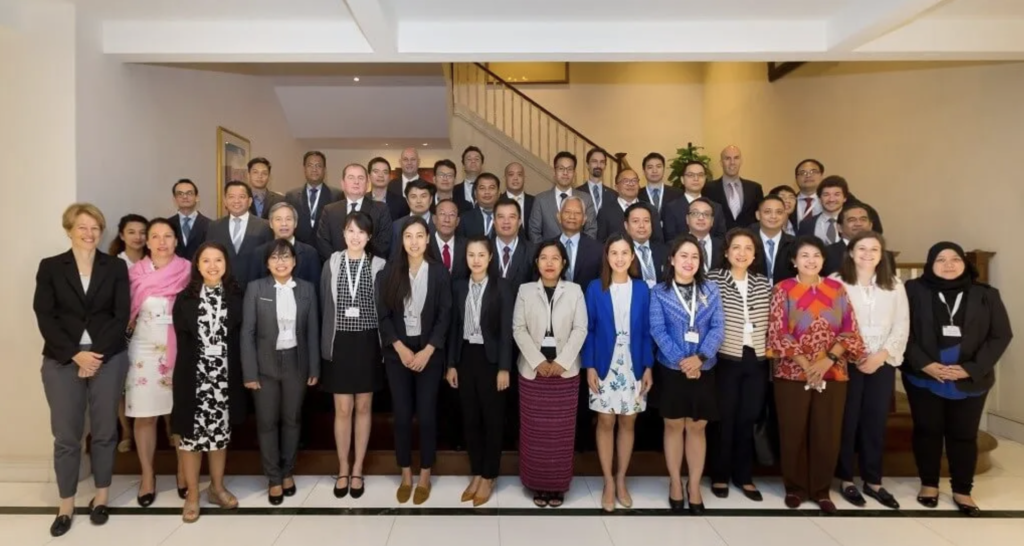
KEY ISSUES:
- Non-proliferation and disarmament: perspectives and priorities from Southeast Asia
- Moving forward on non-proliferation and disarmament
- Missile proliferation and security issues for the region
- Challenges and relevance of the Code for ASEAN member States
III/ INCREASING CONFIDENCE & FAVOURING TECHNOLOGICAL DEVELOPMENT THROUGH THE HCoC
MODERATOR:
- Benjamin HOUTECOUVERTURE, Senior Research Fellow, FRS
KEYNOTE PRESENTATION:
- Maj. Gal Danilo SERVANDO, Head, Center of Excellence CBRN, Manila, The Philippines
- Mitigating CBRN risks in the ASEAN by ensuring long-term sustainability: the role of the CoE CBRN of the European Union
PRESENTERS:
- Dr Sunchai NILSUWANKOSIT, Associate Professor, Chulalongkorn University
- Paul WOHRER, Research Fellow, FRS
KEY ISSUES:
- HCoC and Strategic Trade Controls in the field of missiles: increasing confidence to encourage trade and technological development
- Convergences and divergences between civilian and military technologies: the case of launchers
- Promoting transparency in space development: the potential growth of the space sector in Southeast Asia and the impact of the Code
CONCLUDING REMARKS
- Alexandre HOUDAYER, Secretary General, FRS
- Dr. Michael RASKA, Associate Professor, RSIS
